claudia.schneider@canterbury.ac.nz -- crs2177@columbia.edu -- @CRSchneider3



| Claudia R. Schneider
claudia.schneider@canterbury.ac.nz -- crs2177@columbia.edu -- @CRSchneider3 |
|||
|---|---|---|---|
 |
 |
 |
|
| Teaching | Research | Media & Outreach | |
PublicationsSchneider, C. R. & van der Linden, S. (2023). An emotional road to sustainability: How affective science can support pro-climate action. EmotionReview , 15(4), 284-288. Access the article on the journal's website Schneider, C. R. & van der Linden, S. (2023). Social norms as a powerful lever for motivating pro-climate actions. OneEarth , 6(4), 346-351. Access the article on the journal's website Kerr, J. R., van der Bles, A. M., Dryhurst, S., Schneider, C. R., Chopurian, V., Freeman, A. L. J., & van der Linden, S. (2023). The effects of communicating uncertainty around statistics, on public trust. Royal Society Open Science , 10:230604. Access the article on the journal's website Maertens, R., Götz, F. M., Golino, H. F., Roozenbeek, J., Schneider, C. R., Kyrychenko, Y., Kerr, J. R., ... & van der Linden, S. (2023). The Misinformation Susceptibility Test (MIST): A psychometrically validated measure of news veracity discernment. Behavior Research Methods, 1-37. Access the article on the journal's website Schneider, C. R., Freeman, A., Spiegelhalter, D., & van der Linden, S. (2022). The effects of communicating scientific uncertainty on trust and decision making in a public health context. Judgment and Decision Making, 17(4), 849-882. Access the article on the journal's website Kerr, J. R., Schneider, C. R., Freeman, A. L. J., Marteau, T. M., & van der Linden, S. (2022). Transparent communication of evidence does not undermine public trust in evidence. PNAS Nexus, 1(5): pgac280. Access the article on the journal's website Tanase, L. M., Kerr, J. R., Freeman, A. L., & Schneider, C. R. (2022). COVID-19 risk perception and hoax beliefs in the US immediately before and after the announcement of President Trump's diagnosis. Royal Society Open Science. (Pre-printed prior to publication). (supervision of lead author, psychologist in training) Access the article on the journal's website Dryhurst, S.*, Schneider, C. R.*, Kerr, J., Freeman, A. L. J., Recchia, G., van der Bles, A. M., Spiegelhalter, D., & van der Linden, S. (2022). Risk perceptions of COVID-19 around the world. In COVID-19 - Confronting a New World Risk (pp. 162-174). Routledge. *shared first-authorship. Access the article on the publisher's website Schneider, C. R. & Weber, E. U. (2021). Motivating prosocial behavior by leveraging positive self-regard through values affirmation. Journal of Applied Social Psychology. Access the article on the journal's website Schneider, C. R., Freeman, A., Spiegelhalter, D., & van der Linden. S. (2021). The effects of quality of evidence communication on perception of public health information about COVID-19: two randomised controlled trials. PLOS ONE. Access the article on the journal's website Schneider, C. R., Zaval, L. & Markowitz, E. (2021). Positive emotions and climate change. Current Opinion in Behavioral Sciences. Special issue: Human response to climate change, 42, 114-120. Access the article on the journal's website Recchia, G.*, Schneider*, C. R. & Freeman, A. L. J.(2021). How do the public interpret COVID-19 test results? Comparing the impact of official information about results and reliability used in the UK, US and New Zealand: a randomised, controlled trial. British Medical Journal Open, 11(5): e047731 *shared first-authorship. Access the article on the journal's website Schneider, C. R., Dryhurst, S., Kerr, J., Freeman, A., Recchia, G., Spiegelhalter, D., & van der Linden. S. (2021). COVID-19 risk perception: a longitudinal analysis of its predictors and associations with health protective behaviours in the United Kingdom. Journal of Risk Research, 24(3-4): 294-313. Access the article on the journal's website Kerr, J. R., Schneider, C. R., Recchia, G., Dryhurst, S., Sahlin, U., Dufouil, C., Arwidson, P., Freeman, A. & van der Linden, S. (2021). Correlates of intended COVID-19 vaccine acceptance across time and countries: results from a series of cross-sectional surveys. British Medical Journal Open, 11:e048025. Access the article on the journal's website Freeman, A., Kerr, J., Recchia, G., Schneider, C. R., Lawrence, A., Finikarides, L., Luoni, G., Dryhurst, S., & Spiegelhalter, D. (2021). Communicating personalised risks from COVID-19: guidelines from an empirical study. Royal Society Open Science, 8(4).201721. Access the article on the journal's website Schneider, C. R. & Weber, E. U. (2020). Reducing Discrimination and Fostering Prosociality Towards Ex-Prisoners in Nigeria and the United States. Journal of Social Issues , 76(1), 172-199. Access the article on the journal's website Dryhurst, S.*, Schneider, C. R.*, Kerr, J., Freeman, A. L. J., Recchia, G., van der Bles, A. M., Spiegelhalter, D., & van der Linden, S. (2020). Risk perceptions of COVID-19 around the world. Journal of Risk Research , *shared first-authorship. Access the article on the journal's website Roozenbeek, J., Schneider, C. R., Dryhurst, S., Kerr, J., Freeman, A. L. J., Recchia, G., van der Bles, A. M., van der Linden, S. (2020). Susceptibility to misinformation about COVID-19 around the world. Royal Society Open Science, 7(10), 201199. Access the article on the journal's website Schneider, C. R. (2018). Motivating prosocial behavior: The potential of positive self-directed emotions. Doctoral dissertation, Columbia University, New York, USA. https://doi.org/10.7916/D84J1XJH Access the dissertation on Columbia University Libraries, Academic Commons Schneider, C. R., Zaval, L., Weber, E. U., & Markowitz, E. M. (2017). The influence of anticipated pride and guilt on pro-environmental decision making. PLOS ONE, 12(11), e0188781. Access the article on the journal's website Schneider, C. R., Fehrenbacher, D. D., & Weber, E. U. (2017). Catch me if I fall: Cross-national differences in willingness to take financial risks as a function of social and state ‘cushioning’. International Business Review . 26(6). 1023-1033. Access the article on the journal's website Connecting on Climate: A Guide to Effective Climate Change Communication (2014), Center for Research on Environmental Decisions, Earth Institute, Columbia University & ecoAmerica. Contributor to guide. Access the guide Schneider, C. R. (2013). Neuroeconomics. Controlling. 25(1). 32-35. Access the article on the journal's website Pre-printed & Under reviewSchneider, C. R., Kerr, J. R., Dryhurst, S., & Aston, J.A.D. (2023). The Communication of Statistics and Evidence in Times of Crisis. Pre-printed on arXiv. (in press, Annual Review of Statistics and Its Application). Access the pre-print Marcoci, A., Wilkinson, D. P., Abatayo, A. L., Baskin, E., Berkman, H., Buchanan, E. M., Capitan, S., … Schneider, C. R., ... (2023). Predicting the replicability of social and behavioural science claims from the COVID-19 Preprint Replication Project with structured expert and novice groups. Pre-printed on MetaArXiv. (also currently under Review, Nature Human Behavior). Access the pre-print Kerr, J. R., van der Bles, A. M., Schneider, C. R., Dryhurst, S., Chopurian, V., Freeman, A. L. J., & van der Linden, S. (2021). The effects of communicating uncertainty around statistics on public trust: an international study. Pre-printed on MedRxiv. Access the pre-print Maertens, R., Götz, F. M., Golino, H. F., Roozenbeek, J., Schneider, C. R., Kyrychenko, Y., Kerr, J. R., ... & van der Linden, S. (2021). The Misinformation Susceptibility Test (MIST): A psychometrically validated measure of news veracity discernment. Pre-printed on PsyArXiv. Access the pre-print Media engagement & popular science writingInvited guest, ‘The Naked Scientists – Science Interviews’ podcast and live radio, BBC Radio Cambridgeshire, “Measures to mitigate myths: How science communicators and public can avoid perpetuating dogmas” (2022, September 13). Access the interview Schneider C.R. (2022, Issue 5). Balanced evidence communication: A tool for combatting misinformation? Inspire Magazine, Moller Institute, Churchill College, University of Cambridge. Access the article Schneider C.R. (2020, Aug 5). You want people to do the right thing? Save them the guilt trip. Edited by Sally Davies. Psyche Magazine, Aeon. Access the article Invited guest, ‘Tipping the Scales’ climate conversation series hosted by the Global Returns Project. (2021, May 21). Access the interview Invited guest, ‘Stats + Stories’ podcast, “How we understand uncertainty”, Episode 168. (2020, Dec 17). Access the podcast Invited guest, ‘The Lisa Show’, BYU radio. (2020, Nov 10). Access the interview Invited guest, Cambridge Infectious Diseases Interdisciplinary Research Centre, Webinar Series: Combatting COVID-19, Episode 6, “COVID-19 risk perceptions, reactions, and psychological underpinnings around the world”. (2020, Jun 16) Access the webinar Media coverage & research impactTaylor & Francis Group press release (2021, Mar 21). Personal values & political worldviews shape perception of COVID-19 risk more than its severity. Access the press release - Ensuing press coverage across a range of news outlets achieving national coverage in Greece and France, and MSN coverage. Access example article from the Telegraph - In July 2021 the article had 2,750 views to-date, a potential audience reach of 14.8 million, and the highest Altmetric Attention Score of a Journal of Risk Research article in 2021 to-date, as reported by the Taylor & Francis Group media report. University of Cambridge press release (2020, May 6). UK public ‘most concerned’ about coronavirus – more than Spain or Italy, study suggests. Access the press release - Ensuing press coverage across a range of news outlets, e.g. LBC radio live interview, Financial Times, the Telegraph, Daily Mail Online; with international coverage, such as in Spain’s second largest national paper El Mundo. Access Financial Times article Access Telegraph article Access Daily Mail Online article Access El Mundo article - In September 2020 the article was the most read article in the Journal of Risk Research with 27,693 downloads. Kelly, B. R. (2018, Feb 13). Pride tops guilt as a motivator for environmental decisions. EurekAlert! The Global Source for Science News. American Association for the Advancement of Science (AAAS). Access the press release ----------------------------------------------------------------------------------------It is important to me to help to translate scientific findings into practice. Thus, I am available for part-time consulting on a selective basis. My expertise can be applied to behavioral interventions, project management and evaluation, and communication strategy. Please feel free to reach out to discuss potential projects.Field Work
Assessing values-affirmation as a tool to decrease discrimination against and to foster pro-social motivation towards ex-prisoners in Nigeria Field experiment; In collaboration with CURE-Nigeria (Citizens United for the Rehabilitation of Errants), Abuja, Nigeria & Advanced Consortium on Cooperation, Conflict, and Complexity, Earth Institute, Columbia University; Grant recipient & project lead Read more about the project on the funding agency's website  
Investigating the influence of social and psychological interventions on collective action for water management Field experiment; In collaboration with NEERI (National Environmental Engineering Research Institute), Nagpur, India & Columbia University Water Center; Co-lead of project 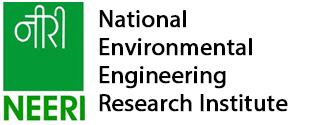 
Practicing Peace – Helping Hands for Health (Main dans la Main pour la Santé et la Paix) Behavior change intervention; scope: remediation of inequality and injustice through community-led HIV and health education and prevention using street theater; Funded by $10,000 Davis Projects for Peace grant; Grant recipient & project lead Read more about the project on the funding agency's website 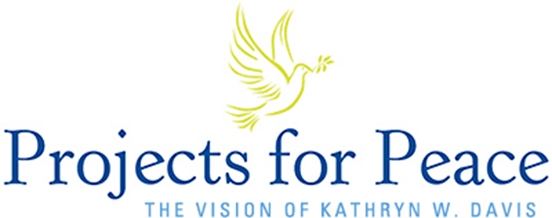  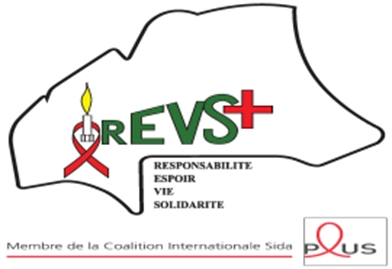
HeForShe Initiative, UN Women Global movement towards gender equality; assistance in strategy development on how to engage people in the movement to become agents of social change 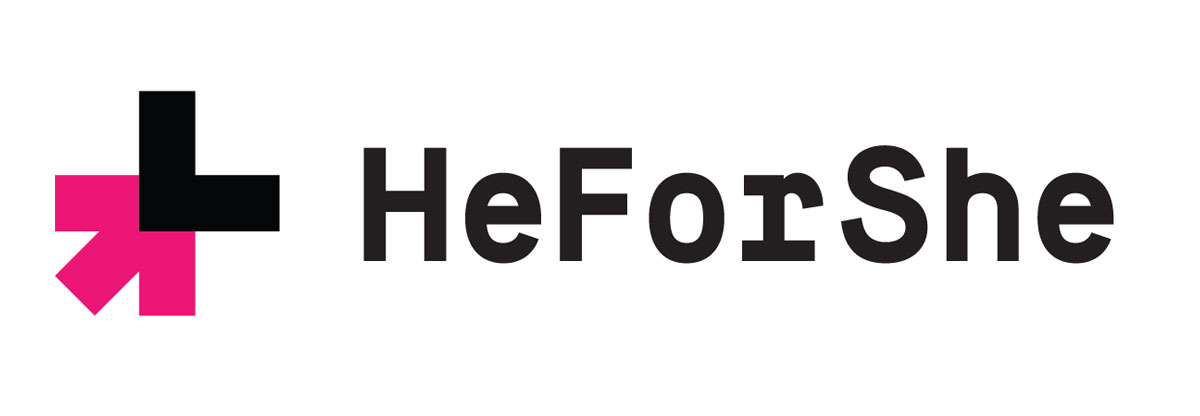 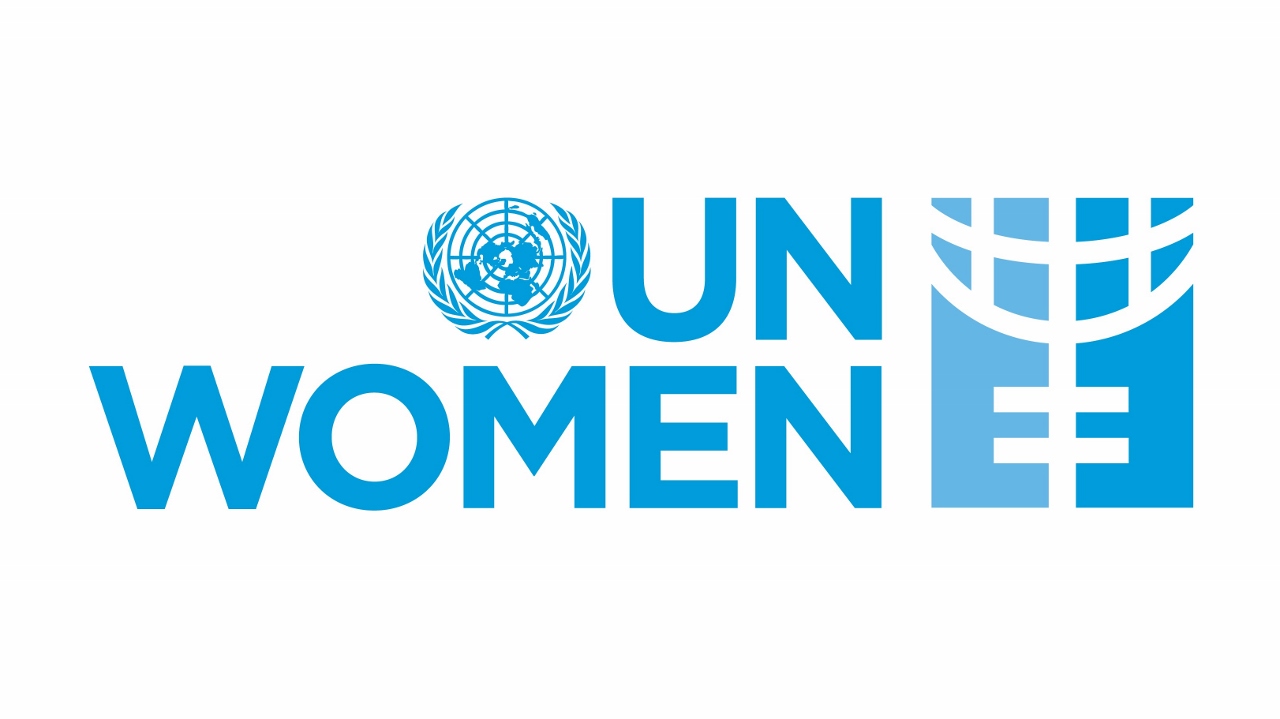
Living Hope Care Society for People Living with HIV/AIDS in Nigeria Nigerian non-governmental and non-profit organization; Project assistant; behavior change interventions via social mobilization, sensitization & community outreach
De Costa a Costa – Solidaridad con la costa atlantico nicaraguense German-Nicaraguan non-governmental, non-profit organization; Project assistant; awareness building & behavior change interventions; scope: human rights, gender equality, self dependence among indigenous Miskito population, reforestation & environmental sustainability
Development Action Awareness Nationwide -D.A.A.N. Foundation Non-governmental and non-profit foundation promoting education among underprivileged children and youths in rural India; project support University of Cambridge, UK, Department of PsychologyLent term, Academic year 2020-2021Instructor: "Social Norms and Influence", Social and Developmental PsychologyPsychology and Behavioural Sciences III
Course evaluations from students"I really enjoyed this lecture block, because of its material but also Claudia's delivery. I find it much easier to understand the concepts having daily life examples, and also keeps it engaging. Overall, I think it's been one of my favourite lecture blocks.""Absolutely brilliant! I loved the structure of the lectures and the fact that the slides had the perfect amount of detail in them (not overwhelming but covered the key content). I also liked the cheat sheet at the end of the lectures as a nice overview of what was covered in the lecture. I have no suggestions for improvement.""The lectures were very easy to follow, as the content was clearly outlined at the beginning of each one. I also liked that there were a lot of studies to back up the theories mentioned.""I thoroughly enjoyed this lecture series and the content within! Seeing how the theories could be easily applied to everyday situations made everything much more relevant and was thought-provoking, especially regarding how we can make environmental change.""I loved the idea of a cheat sheet because it really helped me grasp the general content of one lecture.""I found the lectures to be extremely useful and engaging."Instructor evaluations from students"Claudia is a wonderful lecturer and she is one of the biggest reasons why I enjoyed this lecture block so much -- definitely my favourite lecturer this year!""She delivers her material very clearly with a touch of kindness and understanding.""I really appreciated the enthusiasm in her lectures. I have found some other lectures quite draining to listen to, especially with most things being online at the minute. It was not the case with these lectures - her enthusiasm made them easy to watch!""She is really friendly and smiley which helps you stay focused during the lecture. She speaks at a good pace and is easy to understand. She seems passionate about what she is talking about and overall is a pleasure to have a lecture from.""She seems so lovely, really enjoyed the way she explains things and gives us time to pause and think about things for ourselves. Very helpful way of phrasing things in a very clear manner.""Very friendly and enthusiastic lecturer, which was evident even through the online lectures!""Amazing enthusiasm thank you.""Very thorough and engaging!"----------------------------------------------------------------------------------------
Columbia University, USA, Department of PsychologyAdjunct Assistant Professor, Spring 2019Course design and delivery: "Barriers and Levers for Behavior Change"
Course evaluations from students"This course was amazing. It has been one of my favorite psychology seminars.""This is an outstanding and brilliantly put together course. I have not come across its like at Columbia or elsewhere.""This course was the best seminar I have ever had at Columbia. The readings assigned were valuable and the questions posed by Professor Schneider were thought provoking and taught us new ways to think about and engage with the material.""One tends to hope that every completed semester marks a moment of notable growth or enlightenment. Thanks largely to my experience in Barriers and Levers for Behavior Change, this past semester was that moment of notable growth for me. This course is valuable and applicable no matter your field of study—I cannot recommend it enough!"Instructor evaluations from students"Professor Schneider was excellent. She was entirely professional, yet warm, accessible and helpful. Overall, she was a wonderful professor, one of the best I've had at Columbia.""Claudia Schneider is one of the most exceptional professors I have ever encountered. She is truly a credit to Columbia University. I know that I did some of the best work in my academic career in this seminar, because I was so inspired by the professor both early and later on in the semester. Professor Schneider has naturally what I imagine every educator wishes for—the ability to motivate and inspire students to be better than their best.""Professor Schneider is not only an extremely knowledgeable researcher but also an incredibly effective and talented instructor. She knew her area of study while also knowing how to teach that material to others in an engaging and inspiring way. The course was organized and meticulously planned so every assignment and conversation connected with the ones after and the ones previous. Professor Schneider was challenging and encouraging, and brought the best work out of us in the class.""Professor Schneider was wonderful. She was clearly passionate and well-informed about the class materials, and she was always willing to make time for her student's well-being. She is the only professor I've had who made my ideas and perspectives feel welcome, who seemed interested in my growth rather than what I already did or did not know, and who I felt I could come to with questions and receive the help I needed. I admired her focus, composure, and professionalism.""Professor Schneider was a really great instructor. One of my standards for a good teacher is someone who is able to communicate what they know well to different audiences, and Professor Schneider really excels at this. All in all, a very dedicated instructor who I enjoyed speaking with and learning from!"----------------------------------------------------------------------------------------
Columbia University, USA, Department of PsychologyTeaching Assistant & Teaching Fellow, 2013 – 2018Various courses Experimental Methods in Psychology
“An overview of topics and research in decision science”, Introduction to Carbon Management
“Stress and Health”, Behavioral Neuroscience
Developmental Psychology
Science of Psychology
Behavioral Neuroscience
Quotes from students"Attentive, encouraging, kind, respectful, and very helpful. She knows the subject by heart, and has the disposition and the pedagogical abilities to guide you through the subject. What a great TA and human being!""It is clear that she genuinely cares about her students.""Claudia was a fantastic TA. She has a knack for teaching, I think. Her guest lecture was even better, I felt, than some of the professor's lectures.""Claudia is amazing at explaining concepts and WHY they matter.""Claudia was the perfect TA all around.""Very knowledgeable and accessible. Very warm and caring.""Great TA on so many levels"---------------------------------------------------------------------------------------- |
|---|
Twitter Google Scholar profile Personal profile: Cambridge Social Decision-Making Laboratory, University of Cambridge Personal profile: Winton Centre for Risk and Evidence Communication, University of Cambridge Personal profile: Center for Research on Environmental Decisions, Columbia University
I am a Lecturer (Assistant Professor) in Psychology at the University of Canterbury, New Zealand. I am also a Senior Research Affiliate with the Cambridge Social Decision-Making Lab in the Department of Psychology and a affiliated researcher with the Statistical Laboratory, Department of Pure Maths and Mathematical Statistics at the University of Cambridge, UK.
I received my PhD in Psychology from Columbia University, New York, and held a graduate research scholar position at Princeton University. I subsequently held a post-doctoral Research Associate position at the University of Cambridge, UK, based at the Winton Centre for Risk and Evidence Communication and in the Department of Psychology.
My research at the intersection of social psychology and behavioural science explores factors that shape and motivate prosocial behaviour in the context of large-scale global social issues, such as climate change mitigation, public health crises or intergroup conflict. I approach these questions from three theoretical angles, looking at individual (positive emotions), social (norms), and contextual factors (trustworthy evidence and uncertainty communication) that shape perception, decision making and ultimately (prosocial) behaviour.
I have consulted on development work, led intervention projects, and conducted field research in Africa, Latin America, and India, in addition to lab-based and online survey research in Europe, Asia, America, and Oceania.
It is important to me to help translate scientific findings into practice, such as for use in policy making, and to make them accessible to a broader audience; hence I collaborate with external stakeholders in addition to academic partners.
If you are interested in collaborating, please do get in touch!